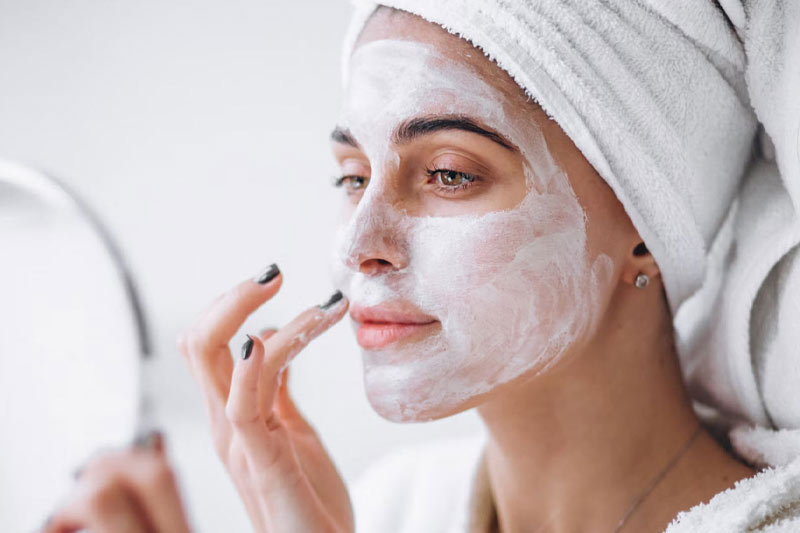
As we age, our skin undergoes various changes, including the loss of elasticity, the appearance of fine lines and wrinkles, and a decrease in moisture retention. While aging is a natural process, a well-rounded skincare routine can help slow down its visible effects and maintain a youthful, radiant complexion. The key to effective anti-aging skincare lies in incorporating ingredients that target specific concerns such as skin texture, collagen production, and hydration cosmetice coreene. This article will explore some of the best anti-aging ingredients to add to your routine, backed by science, to help keep your skin looking youthful for longer.
One of the most powerful ingredients for combating signs of aging is retinol (vitamin A). Retinol is widely regarded as the gold standard in anti-aging skincare due to its ability to stimulate collagen production, accelerate skin cell turnover, and reduce the appearance of fine lines and wrinkles. By promoting faster renewal of skin cells, retinol helps to smooth out the skin’s texture and tone, while its collagen-boosting properties contribute to firmer, plumper skin. Regular use of retinol can improve skin elasticity, making it an essential ingredient for any anti-aging routine. However, since retinol can cause irritation and dryness, it’s important to start with a lower concentration and gradually build up tolerance.
Another key ingredient in the fight against aging is vitamin C, a potent antioxidant that protects the skin from oxidative stress caused by environmental factors like Uv rays and pollution. Vitamin C is known for its ability to brighten the complexion, reduce hyperpigmentation, and promote a more even skin tone by inhibiting melanin production. Additionally, vitamin C stimulates collagen synthesis, helping to improve skin firmness and reduce the appearance of fine lines and wrinkles. To maximize its effectiveness, choose a stabilized form of vitamin C, such as ascorbic acid or sodium ascorbyl phosphate, and apply it in the morning, as it provides added protection against free radicals caused by sun exposure.
Peptides are another group of anti-aging ingredients that deserve a place in your skincare routine. Peptides are short chains of amino acids that play a key role in building proteins, including collagen and elastin, which are essential for maintaining skin’s firmness and elasticity. As we age, the production of these proteins decreases, leading to sagging and wrinkles. Peptides work by signaling the skin to produce more collagen, thereby improving skin structure and reducing the appearance of fine lines. They also enhance skin hydration by strengthening the skin’s barrier function, making them beneficial for both anti-aging and overall skin health. Peptides are generally well-tolerated by all skin types, including sensitive skin.
To maintain hydration and prevent the skin from becoming dry and dehydrated—a common issue as we age—hyaluronic acid is an essential ingredient. Hyaluronic acid is a humectant that attracts and retains moisture, helping the skin stay plump, smooth, and hydrated. As we age, the skin’s natural hyaluronic acid production decreases, leading to dryness and the formation of wrinkles. By replenishing moisture and improving the skin’s elasticity, hyaluronic acid can significantly diminish the appearance of fine lines and give the skin a youthful glow. It works well in combination with other anti-aging ingredients, such as retinol and peptides, and is suitable for all skin types.
Lastly, niacinamide (vitamin B3) is an anti-aging ingredient that can provide multiple benefits for the skin. Niacinamide is known for its ability to strengthen the skin’s natural barrier, reducing moisture loss and improving overall hydration. It also has anti-inflammatory properties that can help soothe irritated skin, making it ideal for sensitive skin types. Additionally, niacinamide helps to even out skin tone, reducing the appearance of age spots, hyperpigmentation, and redness. It promotes collagen production, which helps improve skin elasticity, and can even help minimize the appearance of fine lines and wrinkles. Niacinamide’s versatility makes it an excellent choice for a wide range of skin concerns, including anti-aging.
In conclusion, achieving youthful, radiant skin requires a thoughtful approach to skincare, and incorporating the right active ingredients is crucial in addressing the signs of aging. Retinol, vitamin C, peptides, hyaluronic acid, and niacinamide are all scientifically backed ingredients that offer various anti-aging benefits, from boosting collagen production to improving hydration and reducing the appearance of wrinkles. When used consistently and in combination, these ingredients can help maintain a firm, smooth, and glowing complexion. However, it’s important to introduce these ingredients gradually and be mindful of your skin’s sensitivity, especially when using potent actives like retinol. By incorporating these powerful ingredients into your routine, you can take proactive steps toward preserving your skin’s youthfulness and achieving long-lasting anti-aging results.
